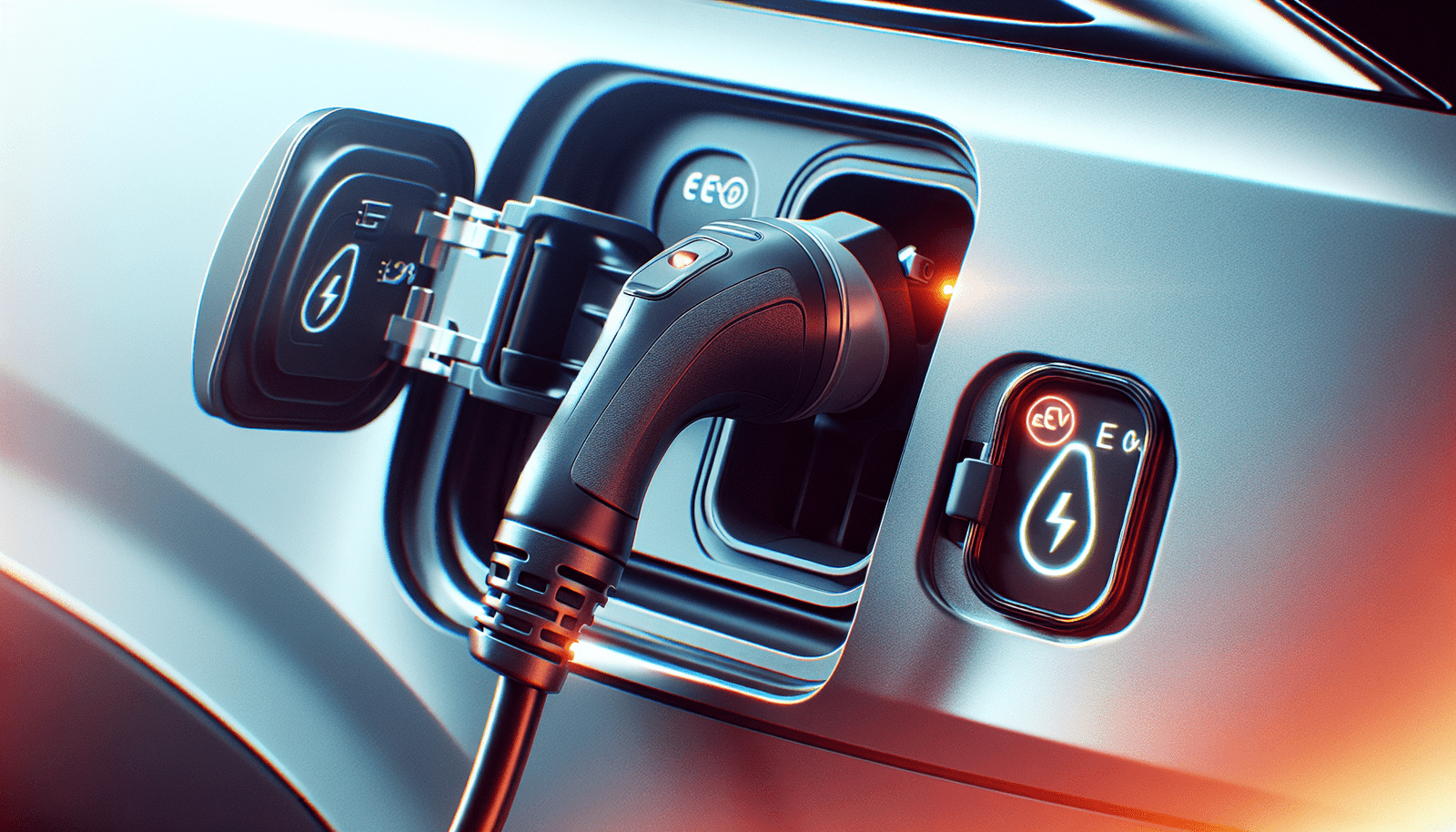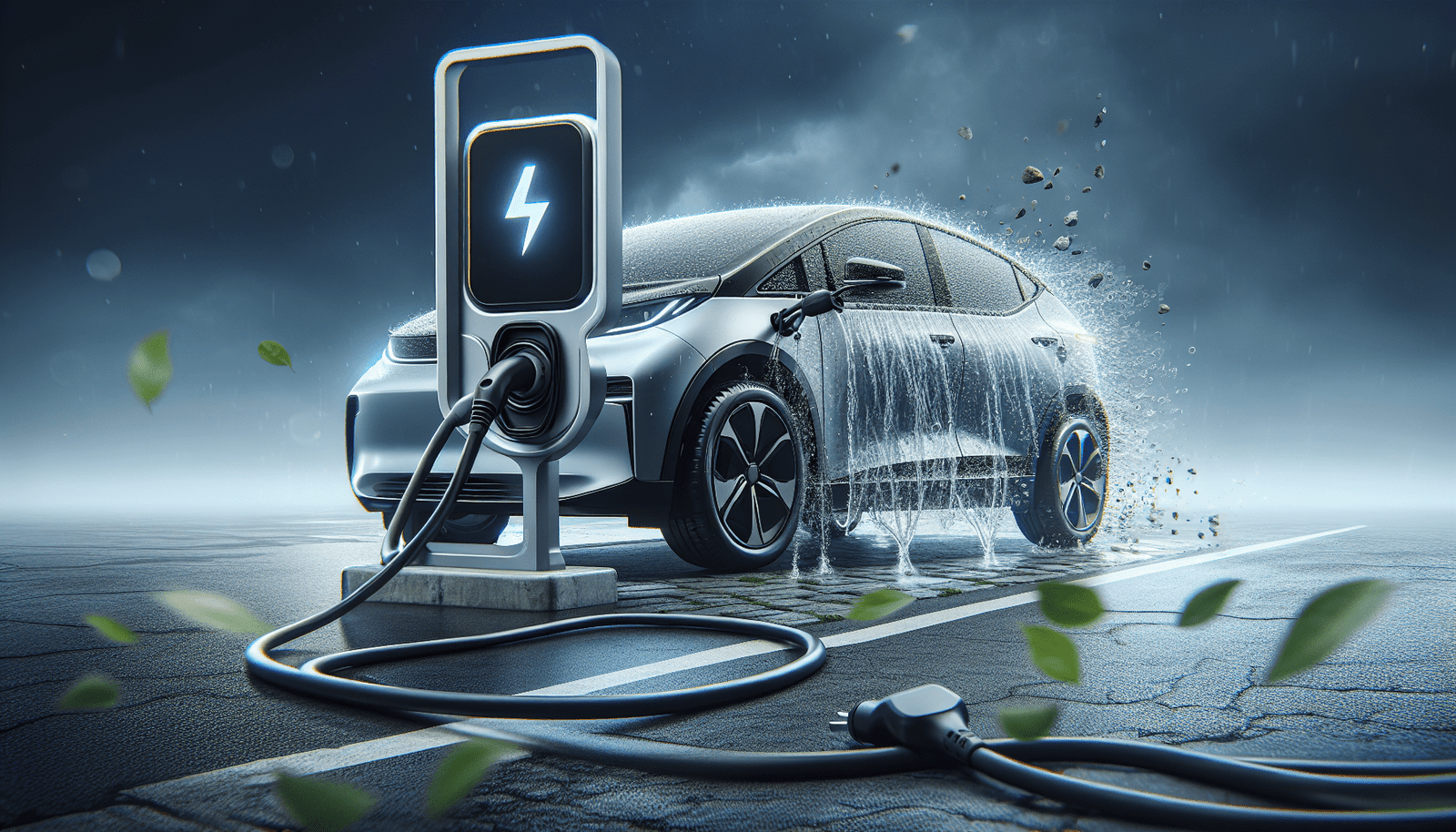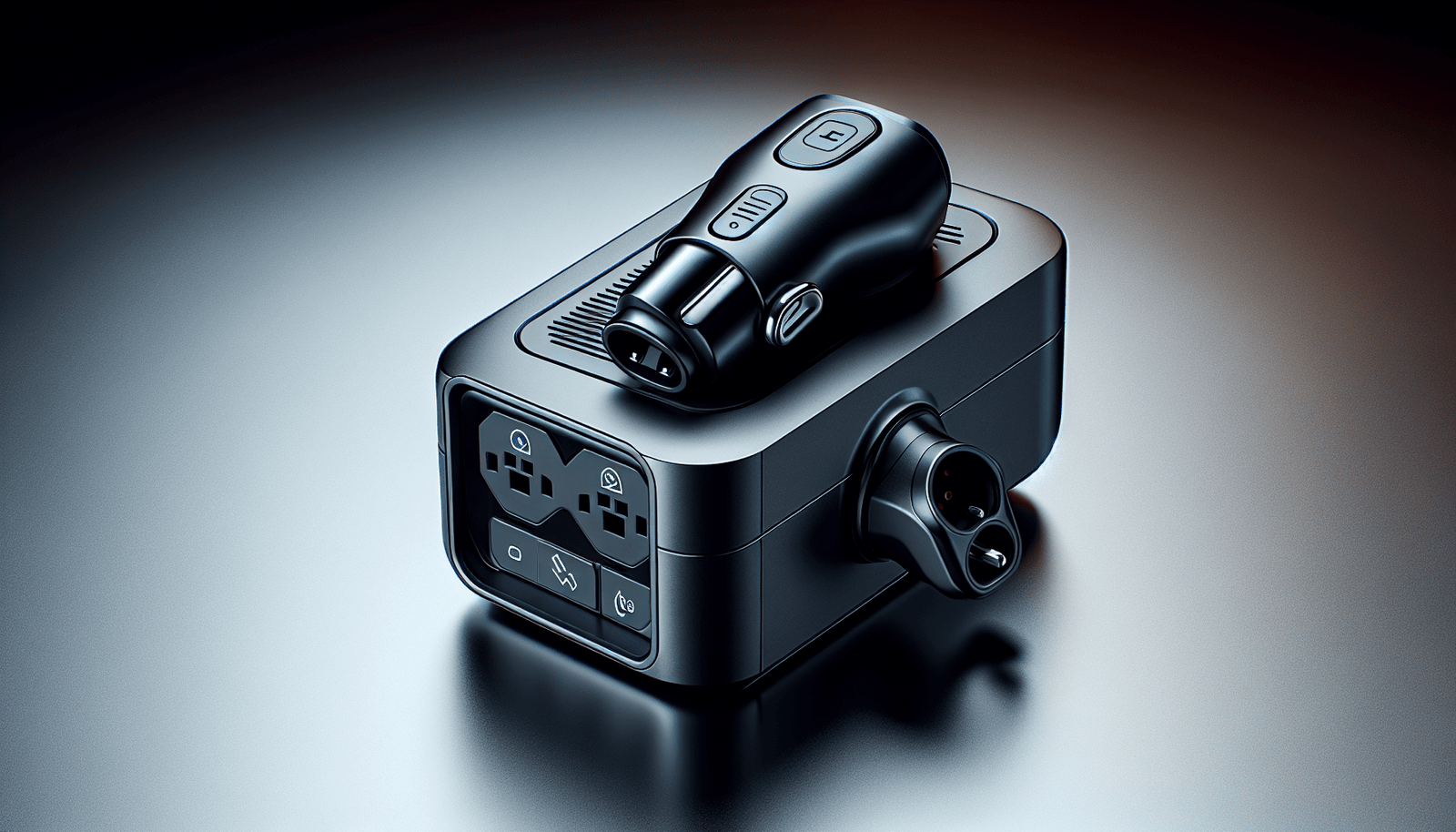Are you an avid electric vehicle user or just someone who is curious about EV charger products? If so, you’ve come to the right place! In this article, we will be addressing some frequently asked questions about EV charger grounding checks. Our goal is to provide you with all the information you need in a friendly and approachable manner. No technical jargon here – just straightforward questions and concise answers. Plus, we’ll make sure to sprinkle in some SEO insights to keep things optimized. So, let’s get started and dive into the world of EV charger grounding checks! And don’t forget, at the end of this article, we’ll give you a little nudge towards shopping online for all your EV charger needs.
Importance of EV Charger Grounding Checks
Electric vehicle (EV) charging has become increasingly popular as more people make the switch to eco-friendly transportation. However, it is important to ensure that proper grounding checks are conducted for EV chargers to ensure safety and prevent potential hazards.
Understanding electric vehicle charging
Before diving into the importance of grounding checks, it is crucial to understand how electric vehicle charging works. When you plug your EV into a charging station, electricity flows from the charger through the cable and into your vehicle’s battery. For this process to happen smoothly and safely, proper grounding is essential.
Contributions of grounding checks to safety
Grounding checks play a significant role in maintaining the safety of EV charging. By verifying proper grounding, you can minimize the risk of electrical shocks, fires, and other electrical hazards. A properly grounded charging system ensures that any electrical malfunction or surge is directed safely into the ground, preventing harm to you, your vehicle, and other connected equipment.
Implications of ignoring grounding checks
Ignoring grounding checks can have serious consequences. Without proper grounding, the charging system may experience electrical malfunctions, which can lead to overheating, short circuits, or even electrocution. The lack of proper grounding also increases the risk of damage to your EV’s battery and other electrical components. Therefore, regularly conducting grounding checks is crucial in ensuring the safety and longevity of your charging system.
Types of EV Charger Grounds
Grounding systems can vary depending on the type of EV charger. Understanding the different grounding types will help you identify the specific grounding system your charger utilizes.
Distinguishing different grounding types
There are three primary types of grounding methods for EV chargers: AC ground, DC ground, and isolated ground. AC ground refers to a grounding system connected to the AC mains, while DC ground is connected to the DC side of the charger. Isolated ground, on the other hand, provides complete electrical isolation between the charger and the ground.
Suitability of different grounds for various charging systems
The suitability of different grounding systems depends on the charging system in use. For instance, AC ground is commonly used in residential charging stations, where the electrical power is derived directly from the main power grid. DC ground, on the other hand, is prevalent in fast-charging stations where the power is delivered as DC current.
How to identify your charger’s ground type
To identify the specific grounding system of your charger, refer to the manufacturer’s documentation or contact the charger manufacturer directly. Understanding your charger’s ground type is essential for performing accurate grounding checks and addressing any potential grounding issues.
Steps to Conduct Grounding Checks
Conducting grounding checks is a relatively simple process, but it is crucial to follow the correct steps in order to ensure accurate results and maintain safety.
Tools and equipment necessary for grounding checks
Before conducting grounding checks, gather the necessary tools and equipment. You will need a multimeter or a grounding resistance tester, grounding rods, grounding wires, and appropriate personal protective equipment such as gloves and safety glasses.
Step-by-step guide to perform a grounding check
- Ensure the charger is disconnected from the power source and the vehicle.
- Identify the grounding point on your charger. This is typically a metal rod or plate attached to the charger.
- Connect the grounding rod or wire to the grounding point on the charger.
- Connect the other end of the grounding wire to a known earth ground, such as a metal water pipe or a grounding rod driven into the ground.
- Use a multimeter or grounding resistance tester to measure the resistance between the charger’s grounding point and the earth ground.
- Compare the measured resistance to the manufacturer’s specifications. If the resistance is within the acceptable range, your charger’s grounding is considered satisfactory.
- If the measured resistance is outside the acceptable range, consider seeking professional assistance to address the grounding issue.
Safety measures to observe during the check
When performing grounding checks, it is important to prioritize safety. Ensure the charger is disconnected from power and the vehicle before starting any checks. Wear appropriate personal protective equipment, such as gloves and safety glasses, to protect yourself from potential electrical hazards. If you are unsure about any steps or encounter any issues, do not hesitate to seek professional help.
Common Grounding Issues
Even with regular grounding checks, grounding issues can still occur. It is essential to be aware of the common grounding problems associated with EV chargers and understand the potential dangers they pose.
Typical EV charger grounding problems
Some common grounding issues might include loose or faulty grounding connections, corroded grounding points, improper grounding wire installation, or inadequate grounding resistance. These issues can arise due to various factors, such as wear and tear, improper installation, or environmental conditions.
Potential dangers of grounding issues
Grounding issues can lead to electrical malfunctions, posing a risk to both the charging system and the user. Without proper grounding, current leakage, electrical shocks, fires, or damage to the EV’s electrical components can occur. It is essential to address grounding issues promptly to prevent these dangers.
Signs and symptoms of grounding complications
Several signs and symptoms may indicate grounding issues with your EV charger. These include flickering or dimming lights when the charger is in use, electrical shocks or tingling sensations when touching the charger or the vehicle, burning smells, or abnormal sounds coming from the charger. If you notice any of these signs, it is important to conduct a grounding check and address any issues immediately.
Fixing Grounding Issues
When facing grounding issues with your EV charger, there are options for both do-it-yourself fixes and seeking professional assistance.
Do-it-yourself fixes for grounding problems
If you have some knowledge and experience with electrical systems, you can attempt to fix minor grounding problems yourself. This may involve tightening loose connections, cleaning corroded grounding points, or replacing faulty grounding wires. However, it is crucial to understand your limitations and seek professional help if you are unsure or uncomfortable with any aspect of the repair.
When to seek professional assistance
In cases where grounding issues are more complex or if you are unsure about the appropriate steps to take, it is advisable to seek professional assistance. Professional electricians or EV charging specialists have the expertise and experience to diagnose and fix grounding problems accurately and safely.
Maintaining safety while troubleshooting grounding issues
Regardless of whether you choose to fix grounding issues yourself or seek professional help, always prioritize safety. Disconnect the charger from the power source and the vehicle before attempting any repairs. Follow safety guidelines, use appropriate personal protective equipment, and consult experts when needed to ensure your safety and the integrity of your EV charging system.
Importance of Regular Grounding Checks
Conducting regular grounding checks is essential in maintaining the safety and reliability of your EV charging system.
Ideal frequency for grounding checks
It is recommended to perform grounding checks on your EV charger at least once a year. However, depending on factors such as usage frequency, environmental conditions, and any previous grounding issues, more frequent checks may be necessary. As a general rule of thumb, if you experience any electrical malfunctions or suspect grounding issues, it is advisable to conduct a check immediately.
Benefits of regular grounding checks
Regular grounding checks offer several benefits. They help identify and address potential grounding issues early on, preventing more significant problems from occurring. Regular checks also ensure the safety of both the charging system and the users, reducing the risk of electrical shocks, fires, and other hazards. Additionally, conducting grounding checks can extend the lifespan of your EV charger by detecting and rectifying any issues that may cause premature wear and tear.
Risks associated with not conducting grounding checks periodically
Neglecting grounding checks can lead to serious consequences. Without regular checks, undetected grounding issues can cause electrical malfunctions, increasing the risk of fires, electrical shocks, and damage to the EV charger and the connected vehicle. By not conducting periodic grounding checks, you run the risk of compromising the safety of your EV charging system and the people using it.
Professional EV Charging Ground Checks Services
If you are unsure about conducting grounding checks yourself or prefer to have a professional handle it, there are various services available.
Where to find professional grounding check services
You can find professional grounding check services through electrician services, EV charging installation companies, or specialized EV charging equipment service providers. It is recommended to choose a reputable and certified provider to ensure quality and reliability.
Comparing features of different service providers
When selecting a professional grounding check service provider, consider factors such as their experience in the field, certifications, customer reviews, and the range of services they offer. Compare the prices and warranties provided by different providers to make an informed decision.
Customer reviews and experiences with professional grounding services
Before choosing a professional grounding service, it is worth checking customer reviews and testimonials. Real-life experiences and feedback from previous clients can give you valuable insights into the quality and reliability of the service provider. Look for positive reviews, testimonials, and recommendations from other EV charger users to help guide your decision.
DIY vs. Professional Grounding Checks
Deciding between conducting grounding checks yourself or opting for professional services depends on various factors.
Comparing the checks provided by professionals vs. DIY checks
Professional grounding checks offer the advantage of expertise and experience. They can accurately diagnose and address complex grounding issues that may be difficult to detect for someone without specialized knowledge. On the other hand, DIY checks can be a cost-effective option for minor grounding issues or for individuals with electrical expertise.
Cost considerations
When considering DIY vs. professional grounding checks, cost is an important factor to consider. DIY checks may save you money in terms of service fees, especially for minor issues that you can handle yourself. However, for more complex or critical grounding problems, professional assistance may be necessary to safeguard your safety and protect your EV charging system.
Deciding which option is best for your situation
To determine whether to opt for DIY or professional grounding checks, consider your level of electrical expertise, the complexity of the grounding issue, and the importance of maintaining safety and reliability. If you are unsure or uncomfortable with any aspect of grounding checks or if the issue is beyond your knowledge and capabilities, it is safer to seek professional assistance.
Making Grounding Checks a Routine
To ensure the ongoing safety and reliability of your EV charging system, it is crucial to make grounding checks a routine part of your maintenance regimen.
Scheduling grounding checks
Set a regular schedule for grounding checks based on the recommended frequency and your specific needs. Consider marking the dates on a calendar or setting reminders on your phone to ensure consistent and timely checks.
Incorporating grounding checks into maintenance routine
Integrate grounding checks into your overall EV charging system maintenance routine. This can include tasks such as cleaning the charging connectors, inspecting cables for wear and tear, and testing other electrical components of the charging system. By making grounding checks a regular part of your maintenance routine, you can proactively identify and address any grounding issues before they escalate.
Reminders and checklists to ensure routine grounding checks occur
To help you stay on track with routine grounding checks, create checklists or use online tools that provide reminders and guides. These resources can help ensure that all necessary steps are followed, and no aspect of the grounding check is overlooked. You can also seek out mobile applications or software that provide maintenance reminders specific to your EV charging system.
Resources and Learning Material
To enhance your understanding of EV charger grounding checks, there are various online resources and learning materials available.
Best online resources for EV charger grounding checks
Numerous websites, forums, and online communities provide valuable information on EV charger grounding checks. Some reputable sources for EV charging information include automotive manufacturer websites, EV charging equipment manufacturers, electric vehicle associations, and government energy departments. These resources often offer FAQs, instructional videos, and other educational materials to guide you through grounding checks.
Recommendations for further reading
To delve deeper into the topic of EV charger grounding checks, consider exploring books, articles, and research papers related to electrical safety, EV charging infrastructure, and EV technologies. These sources can provide detailed technical knowledge and insights that can enhance your understanding of grounding checks.
Learning materials to enhance understanding of EV charger grounding checks
If you prefer a more structured learning approach, consider taking online courses or attending workshops related to electrical safety, EV charging systems, or electrical engineering. These learning materials can provide in-depth knowledge and hands-on experience to further enhance your understanding and skills in conducting grounding checks for your EV charger.
In conclusion, conducting regular grounding checks for your EV charger is essential for ensuring safety and preventing potential hazards. By understanding the different grounding types, following proper steps, and addressing any issues promptly, you can maintain the reliability and longevity of your charging system. Whether you choose to perform grounding checks yourself or seek professional assistance, always prioritize safety and make grounding checks a routine part of your EV charging system maintenance.




